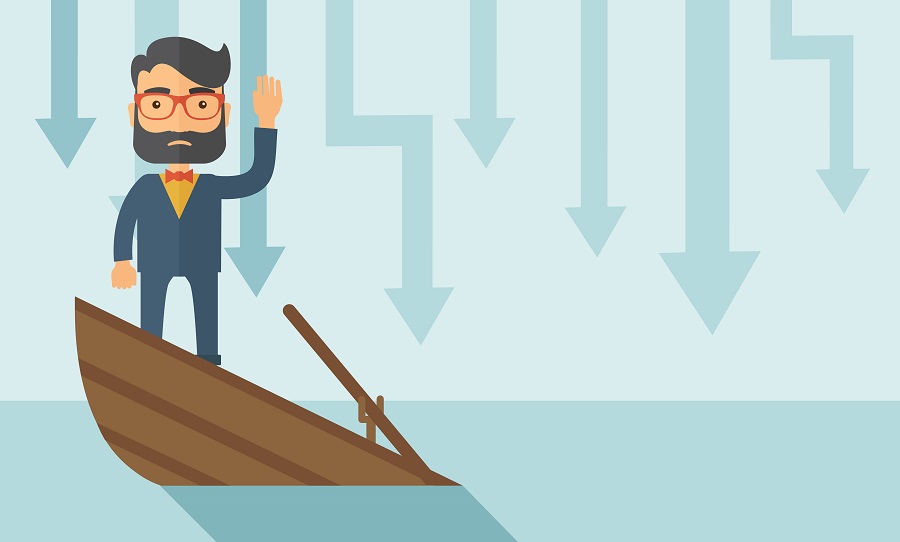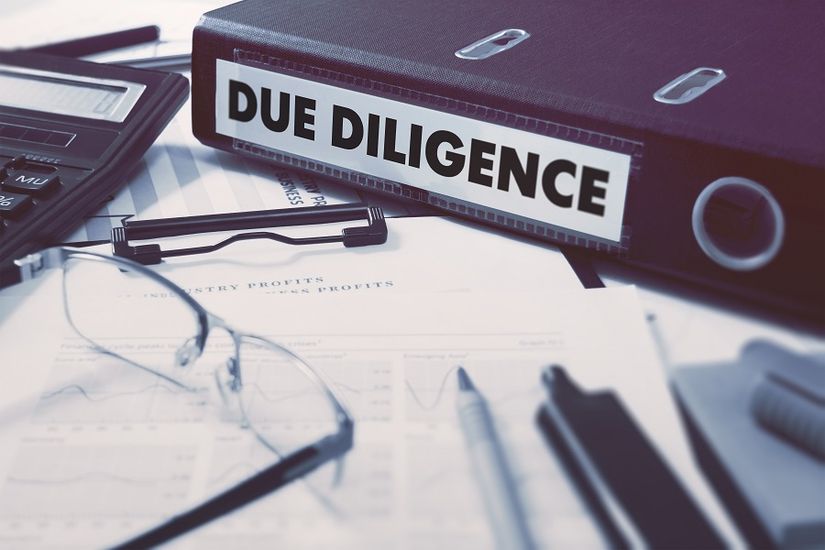Even today, with so much data available, and relative ease to obtain the needed information upon request, companies still appear to not be able to put an end to due diligence failures. Having covered the basics of performing due diligence with a Q&A, we now decided to share with you some of the most notable due diligence disasters worldwide from the last 25 years.
13 Huge due diligence disasters (and what we've all learned from them)
Due Diligence Case Study 1. TimeWarner & AOL (2004)
Disaster: US $99 billion
The infamous America Online (AOL) acquisition of TimeWarner took place during some exciting times, when the word ‘Internet’ was itself a breeze of innovation, changes and hopes. Expectations were great, and the dream was to capitalize on the confluence of internet and mass media. But it was not meant to be. A rushed and conventional due diligence failed to identify the transation’s Achilles’ heel (or heels). On top of that, management issues of running a huge media conglomerate proved to be one more due diligence oversight. The transaction resulted into one of the greatest M&A failures and biggest due diligence disasters, the loss rising up to $99 billion.
Due Diligence Case Study 2. DaimlerChrysler (1998)
Disaster: US $36 billion
The announcement of the DaimlerChrysler transaction drove a supposable enthusiasm. Two legends and two huge markets: what could possibly go wrong? There are blamers and guilty figures on both sides. Some state that it was the cultural differences that lead to an eventual ‘civil war’ within the conglomerate. Others stick with the idea that it was the inability of Daimler to take adequate decisions in the most appropriate moments. Yet others say that it was the fault of Chrysler’s declining attractiveness on the ever growing competitive American market. However what everyone does agree on, is that there actually was no due diligence before the transaction, one that would make all the existing and probable issues float and attract the deserved attention ahead of the deal. One of Daimler’s board member later confided that the advise was requested from Goldman Sachs in order make the transaction happen, and not for the sake of due diligence itself, because the company’s management was mostly blinded by Chrysler’s profits. This due diligence oversight cost the company about some $36 billion.
Due Diligence Case Study 3. Nextel & Sprint (2005)
Disaster: US $29.7 billion
Soon after the idea appeared, the two so-called equals Sprint Corporation and Nextel Communications decided to merge into Sprint Nextel Corporation. It might have been perfect. However, due diligence failed to correctly estimate the so-many challenges the new corporation would have had to face, especially market and culture-related, and even technical ones. Firstly, the two networks - iDEN and CDMA - were not compatible, and the series of attempts to ameliorate this particular situation were not too successful. Secondly, Nextel, as a wireless service provider had some conservative approaches, while Sprint, as a telecommunications company, was more customer oriented. Nonetheless, some sources reported certain issues Sprint had with customer service, affecting the sound reputation of Nextel’s representatives. Thirdly, with these and other challenges in mind, it is no surprise that Nextel’s management started to leave the company one by one. This due diligence failure resulted in writing down $29.7 billion of $36 billion that Split had paid for Nextel.
Due Diligence Case Study 4. HP & Autonomy (2012)
Disaster: US $11.1 billion
HP’s acquisition of Autonomy for $10.2 billion was somewhat uneventful, and did not cause too much noise neither before, nor immediately after the transaction. However, it took a few month until HP management started to understand the consequences of a poor due diligence. It turned out, that a series of issues were overlooked, such as inaccurate income statements, balance sheets, cash flows and footnotes. The overall conclusion was that Autonomy was significantly overpriced, and HP had to write down almost $9 billion. Numerous filed suits from HP’s shareholders followed for the incapacity to do a proper due diligence before the transaction. The latter became one of the most wasteful purchases of a software asset.
Due Diligence Case Study 5. Enron, J.P. Morgan, Citigroup and other banks (2001 - 2005)
Disaster: US $3.2 billion
This case is among the pioneers to change the way due diligence worked in the US. Enron received various loans, only part of which were secured by assets. Thus, a series of trading positions and other investments in off-the-books ventures, along with more loans, were not backed. In trying to not file for bankruptcy, new management of Enron filed suit against a number of banks for helping the former one to commit fraud. With total due diligence failure costs rising to $3.2 billion, it became clear that all the banks would now have to do due diligence checking of their clients by forming a view of the transaction from the customer’s perspective.
Due Diligence Case Study 6. Quaker Oats & Snapple (1998)
Disaster: US $1.4 billion
In their momentum on the beverages market after a success with Gatorade, Quaker Oats decided to acquire Snapple, well known for its teas and juices. However, they learned the hard way about the importance of a sound due diligence. In this case, several oversights can be mentioned. First of all, the whole transaction was argued to be overestimated, Snapple’s purchase price ending up to be $1.7 billion. According to various analyses, that’s about a billion dollars more than the so-considered price of the company. Secondly, they failed at intellectual property and competition analysis, ending up to infringe the fundamental law of mergers and acquisitions. Thirdly, the logistics and marketing were set up erroneously. Altogether, the acquisition resulted in a daily loss of $1.6 million for the whole duration of ownership, as Snapple was sold for $300 million.

Due Diligence Case Study 7. BMW & Rover (1994)
Disaster: GB £790 million
BMW came to the decision of acquiring Rover when the latter’s owner at the moment - British Aerospace - was facing some stygian times. There were several goals chased by BMW, among the main ones being increasing sales and diversifying products, especially with the iconic brands such as Land Rover and Mini. Knowing that hands were shaken in only 10 days, it is no surprise that in a while signs of a poor due diligence started to come to the surface. Firstly, some financial data issues and inaccurate sales data were overlooked. Secondly, the Rover’s learning culture was neglected, and the existing ‘not invented here’ attitude resulted in a reluctance to accept other manufacturing approaches. Thirdly, ignorance of the lack of unity in BMW’s directors resulted in a poor leadership after the acquisition followed by massive resigning thereof. Although this massive transaction cannot be deemed a total failure, especially considering that BMW still owns Mini, the former definitely learned the importance of a proper due diligence the hard way.
Due Diligence Case Study 8. ERA & Caterpillar (2012)
Disaster: US $580 million
Caterpillar, the centenarian heavy equipment US manufacturer, showed interest in Chinese coal-mining roof supports, produced by Zhengzhou Siwei Mechanical & Electrical Equipment Manufacturing Co Ltd. The latter was owned by ERA Mining Machinery Ltd., and Caterpillar might have considered this easy money, especially taking into account the importance of the Chinese coal market on the global scale. Some stakeholders were toasting to the award for the cross-border deal of the year. However, not everyone was happy about the transaction. Soon, a “deliberate, multi-year, coordinated accounting misconduct” at Siwei was disclosed, exposing a poor due diligence. Some reports state that Caterpillar might have chosen to oversee the issues. Regardless of what exactly the truth is, the transaction bound the latter to write down $580 million. Ouch.
Due Diligence Case Study 9. MySpace & News Corporation (2005)
Disaster: US $545 million
Initially a really great idea and successful transaction, the acquisition of MySpace, the leading and ever-growing social network at that time, by News Corporation for $580 million was a bridge to lead more traffic to other News Corp sites. It celebrated a rise in value to $12 billion in two years only. However, at that point something went wrong. Due diligence overlooked the lack of an appropriate research and development strategy, as well as the competitors starting to spring here and there, with Facebook being the top dog. It didn’t take Facebook more than two years to catch up to MySpace. In two more, MySpace traffic fell to about 30% of that of its competitor. After all, MySpace was sold for just $35 million in 2011.
Due Diligence Case Study 10. Paulson&Co Inc. & Sino-Forest (2011)
Disaster: US $460 million
The acquisition of Sino-Forest, a Chinese forestry company, by Paulson & Co. hedge fund was not a one-minute deal. The latter started investing in Sino-Forest in 2008, and rose to a share of 14% of its stocks, becoming its biggest shareholder in 2011. However, a report on an investigation of a short-seller was soon published, revealing wrongly valuated assets, and raising various questions about the company’s accounting. Sino-Forest’s shares plummeted. The hedge fund was accused for failing to do a proper due diligence during all these years, before buying the stocks and during their ownership. The major investor of Paulson & Co. stated that the hedge fund’s due diligence disregard was shocking, and that the disaster could and should have been anticipated.
Due Diligence Case Study 11. Mattel & The Learning Company (1998)
Disaster: US $430.9 million
In their attempt to enter the interactive software market, Mattel, a toy company, agreed on the takeover of The Learning Company, an educational software firm. Long story short, Mattel claimed to have done the due diligence before concluding the deal. Apparently it was not too efficient, as some important aspects have been omitted. The main issue causing the transaction to turn out a failure were notably overestimated sales expectations and financial projections. Once the new chairman vested, positive changes started for Mattel. The Learning Company was sold for no cash, for an unspecified share of its future revenue. Along with the no cash sale, Mattel also registered a net loss of $430.9 million.
Due Diligence Case Study 12. Barclays (2015) and Deutsche Bank (2017)
Disaster: GB £72 million and GB £163 million, respectively
In their chase to take on fast on a group of ultra-high net-worth clients, even a bank as big as Barclays failed to do an appropriate due diligence. As these clients were so-called politically exposed, a more thorough due diligence should have been done to identify corruption and money laundering. The transactions mounting to about GB £1.88 billion involved trading securities of offshore companies, owned by the same clients. The Financial Conduct Authority (FCA) imposed a fine of GB £72 million on the Barclays Bank for the ignorance of processes aimed at safeguarding financial crimes.
In less than two years, in a pretty similar situation, FCA fined Deutsche Bank for GB £163 million.The latter failed a proper due diligence and did not identify money laundering to UK of about 6 billion US dollars.
Due Diligence Case Study 13. Rebus Group (2016)
Disaster: GB £1 million
Rebus Group was one of the companies that managed to get investors’ attention and sympathy on Crowdcube, a large crowdfunding platform from UK. Although it was not the first company that failed its Crowdcube investors, it was the biggest. Rebus promised to achieve challenging results by the end of each of the next three years, but the ship started taking on water from the very first quarters of its activity. Regardless of the additional cash injections, there was no light at the end of the tunnel. Crowdcube was accused of not performing appropriate due diligence of the companies it helped raising funds for. Rebus sank in a bit more than a year, taking the investors’ money with it.

Why and when is a due diligence process needed?
History shows us, that before concluding a deal, a due diligence checking should not only regard the past and present of the companies involved (including affiliates). Considering also possible cultural clashes, possible layoffs, managerial challenges, consequences of system differences and many other particular factors would help to prevent due diligence failures. A good case scenario would aggregate all the analysed aspects in a comprehensive due diligence report.
But due diligence is not just for merger and acquisition transactions. Neither is it for banks only. Regardless of the type of the deal, you should always know who you are dealing with. Various platforms, including Global Database, assist you in running Anti Money-Laundering and Know Your Customer checks. When accessing Global Database companies directory, you can actually choose your future business partners by filtering out the companies according to your due diligence checklist. Thus, with a BI platform at hand you can know that you are safe before the transaction, and even at the point when are just starting to collect prospects data. Global Database, in many cases, offers free due diligence checks.
To sum up…
The examples listed above are just a few fish from an entire ocean of due diligence failures. After more than 30 years of research and analysis, in their book, Mastering the Merger, D. Harding and S. Rovit set asking and answering the big questions in due diligence among the four key imperatives of a disciplined deal-making process.
Due diligence checking is not only for financial institutions, and not just for M&As. A proper due diligence process done in time will keep you safe and strict regulations compliant. Moreover, there are opportunities of free due diligence checks, like the one described in this article.
